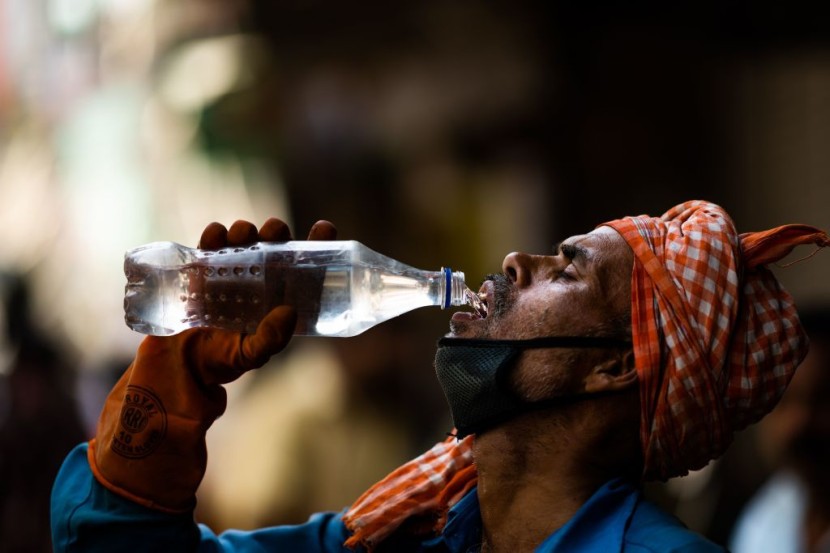
Some areas in India and Pakistan suffer from record-breaking heat levels, which experts attribute to climate change, endangering the lives of millions.
According to the Indian Meteorological Department (IMD), the average maximum temperature in northwest and central India in April was the highest since records began 122 years ago, reaching 35.9 and 37.78 degrees Celsius (96.62 and 100 degrees Fahrenheit), respectively.
CNN meteorologists pointed out that New Delhi experienced seven consecutive days above 40 degrees Celsius (104 degrees Fahrenheit) last month, three degrees above the normal temperature for April.
The heat forced schools to close, damaged crops, and put a strain on the energy supply in certain regions, prompting officials to advise people to stay indoors and drink plenty of water.
Based on the most recent data provided by Pakistan's Meteorological Department (PMD) to CNN, the cities of Jacobabad and Sibi in the country's southwestern Sindh province reached highs of 47 degrees Celsius (116.6 degrees Fahrenheit) on Friday.
Unprecedented Heatwave
This was the hottest temperature ever recorded in any city in the Northern Hemisphere on that day, according to the PMD.
Sherry Rehman, Pakistan's Minister of Climate Change, said that the heat is "the first time in decades" when Pakistan is undergoing "what many call a 'spring-less year'."
The Intergovernmental Panel on Climate Change (IPCC) has identified India as one of the countries with a high risk of the climate crisis.
Dr. Chandni Singh, IPCC Lead Author, and Senior Researcher at the Indian Institute for Human Settlements, remarked that the "unprecedented" heatwave has serious effects.
"We have seen a change in its intensity, its arrival time, and duration. This is what climate experts predicted and it will have cascading impacts on health," the expert said.
Heatstroke cases in Patna, the state capital of Bihar in India, have increased dramatically in the last ten days, with a rise in the number of children suffering from fever, vomiting, and diarrhea.
Read Also : Macron's Presidential Win Greeted by Violent May Day Protests Criticizing French Leader's Policies
Big Challenge For Muslims
Coming during the month of Ramadan, the heat makes fasting in India and Pakistan even tougher for Muslims, who shun even water during daylight hours for the holy month.
The heat makes fasting in India and Pakistan much more challenging for Muslims, who refrain from drinking even water during daytime hours during the holy month of Ramadan, per ABC News.
When the sun goes down, sellers sell Rooh Afza, a sugary pink beverage that has been relieving thirst throughout the subcontinent for generations.
People swim or wade in shallow dark waters with dark sands and stones, and some dress in white fabric and others shirtless.
The severe heat also raises electricity demand and strains water supplies.
Due to coal shortages at power plants, several Indian states, including Rajasthan, Gujarat, and Andhra Pradesh, have reduced electricity supplies to industrial sectors.
According to the World Meteorological Organization, temperatures will ease by May 2.
The #heatwave in #India and #Pakistan is hitting many millions of people and the economy. Temps topped 45°C (113°F), will ease by 2 May#Heatwaves are one of the signs of #climatechange
— World Meteorological Organization (@WMO) April 29, 2022
Air temps at 1200 UTC from @CopernicusECMWF
WMO roundup at https://t.co/au1UovUieL pic.twitter.com/wGuZXIU2yS
Though in India, daytime high temperatures will persist in the first week of May, along with warmer nights, according to the country's weather service, per The National.
"Most parts of northwest India are expected to experience above-normal temperatures in May,"
Mrutyunjay Mohapatra, director-general of India's Meteorological Department, said.








